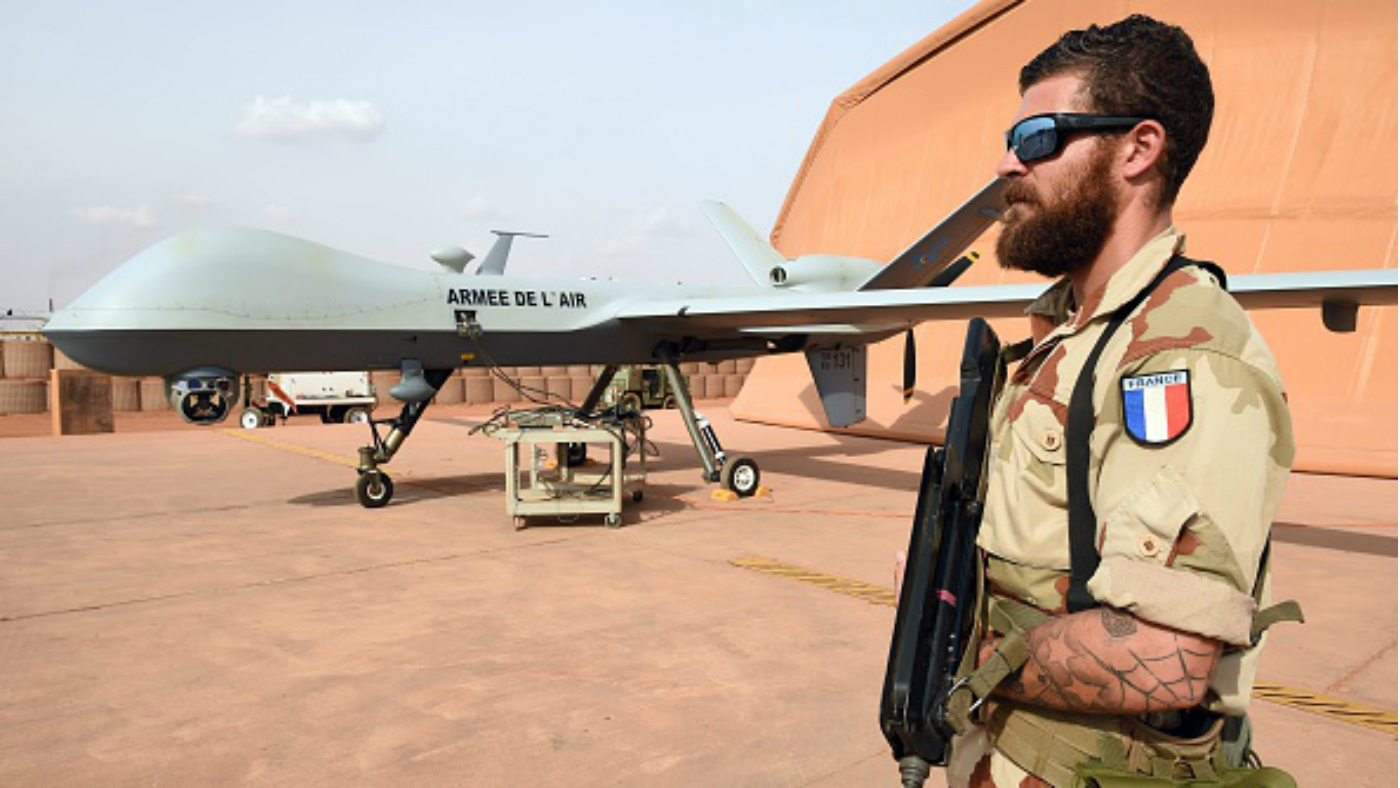Elon Musk and other AI experts send 'killer robots' warning
Open letter to UN says weapons technology could lead to a 'third revolution in warfare'

A free daily email with the biggest news stories of the day – and the best features from TheWeek.com
You are now subscribed
Your newsletter sign-up was successful
Over 100 experts in artificial intelligence (AI) and robotics, including the billionaire Elon Musk, have called on the United Nations (UN) to ban the development of "killer robots" before the technology is used in warfare, reports the BBC.
In an open letter to the UN, the experts say the rise in companies developing AI systems that may be "repurposed to develop autonomous weapons" could lead to "the third revolution in warfare."
The 116 experts who signed the paper say these weapons "permit armed conflict to be fought at a scale greater than ever", adding that the UN does not have long to act before the technology falls into the wrong hands.
The Week
Escape your echo chamber. Get the facts behind the news, plus analysis from multiple perspectives.

Sign up for The Week's Free Newsletters
From our morning news briefing to a weekly Good News Newsletter, get the best of The Week delivered directly to your inbox.
From our morning news briefing to a weekly Good News Newsletter, get the best of The Week delivered directly to your inbox.
It says that AI systems can be used as "weapons of terror, weapons that despots and terrorists use against innocent populations and weapons hacked to behave in undesirable ways."
The letter calls on the UN to add these autonomous systems to the "list of weapons banned under the UN Convention on Certain Conventional Weapons (CCW)", says the BBC.
The Guardian reports that "experts have previously warned that AI technology has reached a point where the deployment of autonomous weapons is feasible within years".
Despite arguments that "AI can be used to make the battlefield a safer place for military personnel", the newspaper says "experts fear that offensive weapons that operate on their own would lower the threshold of going to battle and result in greater loss of human life."
A free daily email with the biggest news stories of the day – and the best features from TheWeek.com
In 2015, a similar letter was signed by "thousands of researchers" warning the UN of the "dangers of autonomous weapons", says Business Insider.
The two letters have led to a meeting with the UN and 123 member nations over the technologies, says The Verge, although "discussions have been delayed due to unpaid fees from member states."
Talks are now expected to commence later this year.
-
 The ‘ravenous’ demand for Cornish minerals
The ‘ravenous’ demand for Cornish mineralsUnder the Radar Growing need for critical minerals to power tech has intensified ‘appetite’ for lithium, which could be a ‘huge boon’ for local economy
-
 Why are election experts taking Trump’s midterm threats seriously?
Why are election experts taking Trump’s midterm threats seriously?IN THE SPOTLIGHT As the president muses about polling place deployments and a centralized electoral system aimed at one-party control, lawmakers are taking this administration at its word
-
 ‘Restaurateurs have become millionaires’
‘Restaurateurs have become millionaires’Instant Opinion Opinion, comment and editorials of the day
-
 Are AI bots conspiring against us?
Are AI bots conspiring against us?Talking Point Moltbook, the AI social network where humans are banned, may be the tip of the iceberg
-
 Elon Musk’s pivot from Mars to the moon
Elon Musk’s pivot from Mars to the moonIn the Spotlight SpaceX shifts focus with IPO approaching
-
 Moltbook: the AI social media platform with no humans allowed
Moltbook: the AI social media platform with no humans allowedThe Explainer From ‘gripes’ about human programmers to creating new religions, the new AI-only network could bring us closer to the point of ‘singularity’
-
 Claude Code: Anthropic’s wildly popular AI coding app
Claude Code: Anthropic’s wildly popular AI coding appThe Explainer Engineers and noncoders alike are helping the app go viral
-
 Will regulators put a stop to Grok’s deepfake porn images of real people?
Will regulators put a stop to Grok’s deepfake porn images of real people?Today’s Big Question Users command AI chatbot to undress pictures of women and children
-
 Most data centers are being built in the wrong climate
Most data centers are being built in the wrong climateThe explainer Data centers require substantial water and energy. But certain locations are more strained than others, mainly due to rising temperatures.
-
 The dark side of how kids are using AI
The dark side of how kids are using AIUnder the Radar Chatbots have become places where children ‘talk about violence, explore romantic or sexual roleplay, and seek advice when no adult is watching’
-
 Why 2025 was a pivotal year for AI
Why 2025 was a pivotal year for AITalking Point The ‘hype’ and ‘hopes’ around artificial intelligence are ‘like nothing the world has seen before’